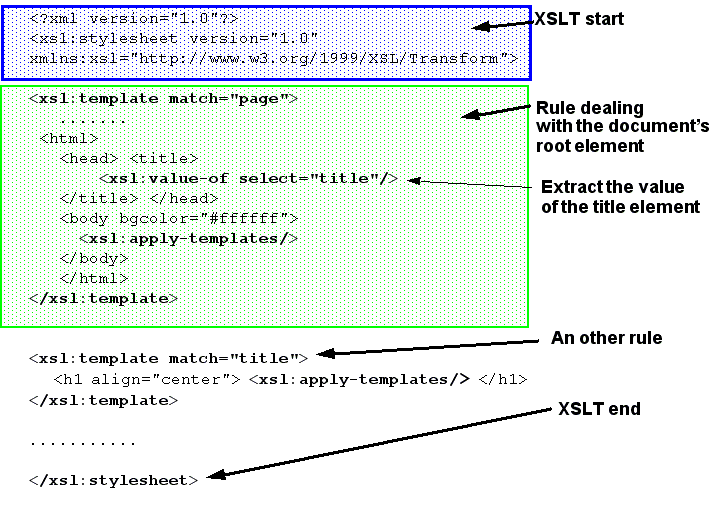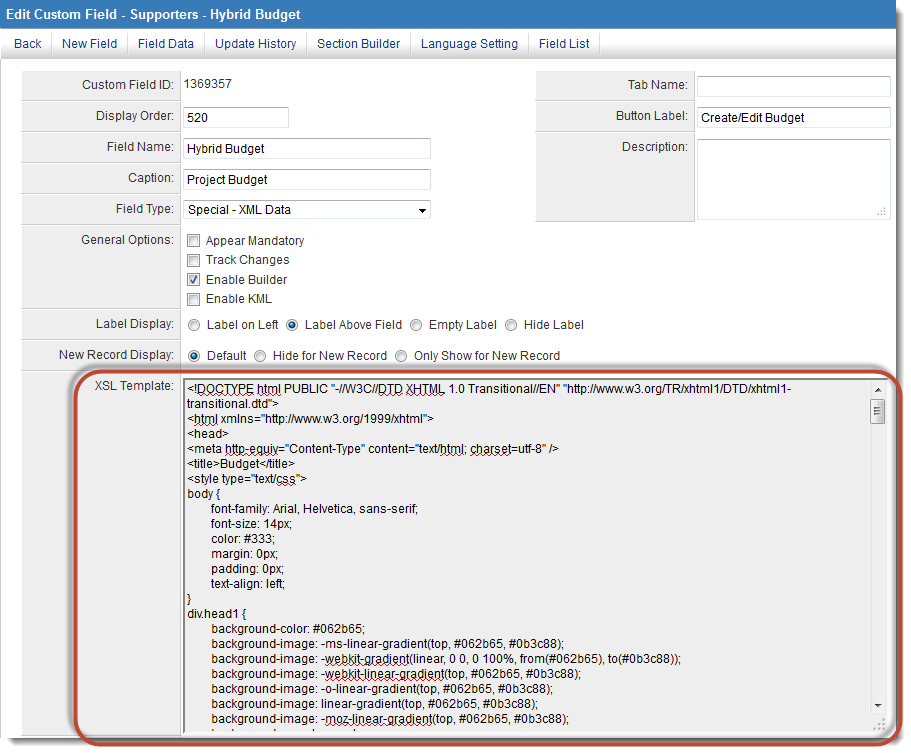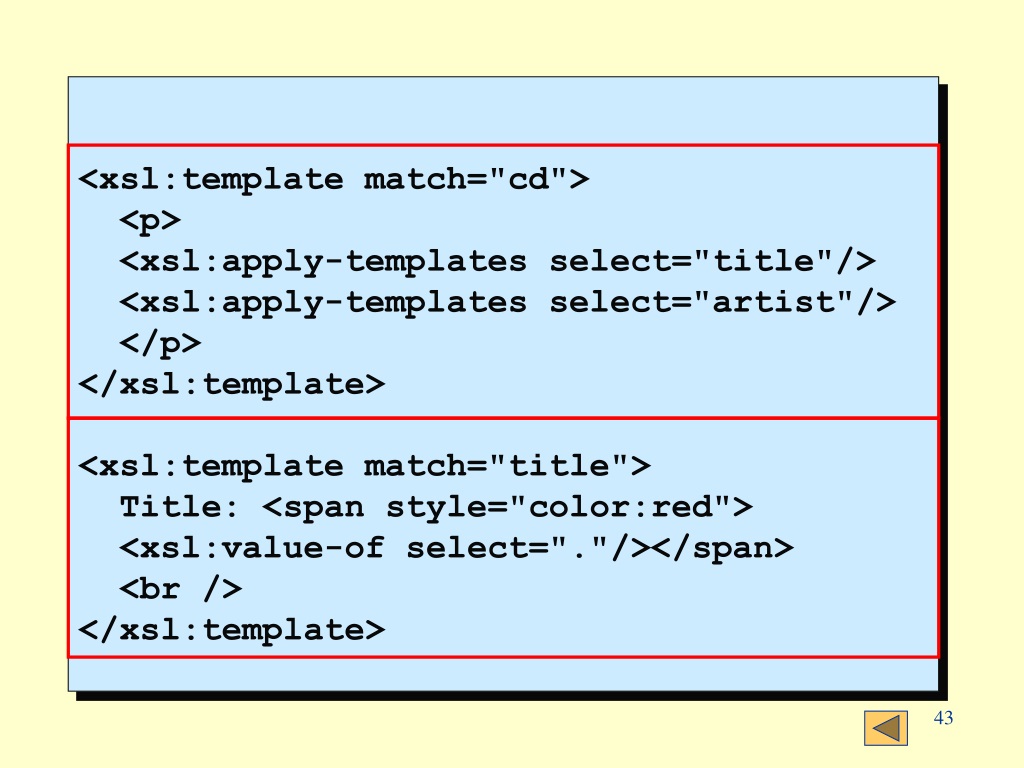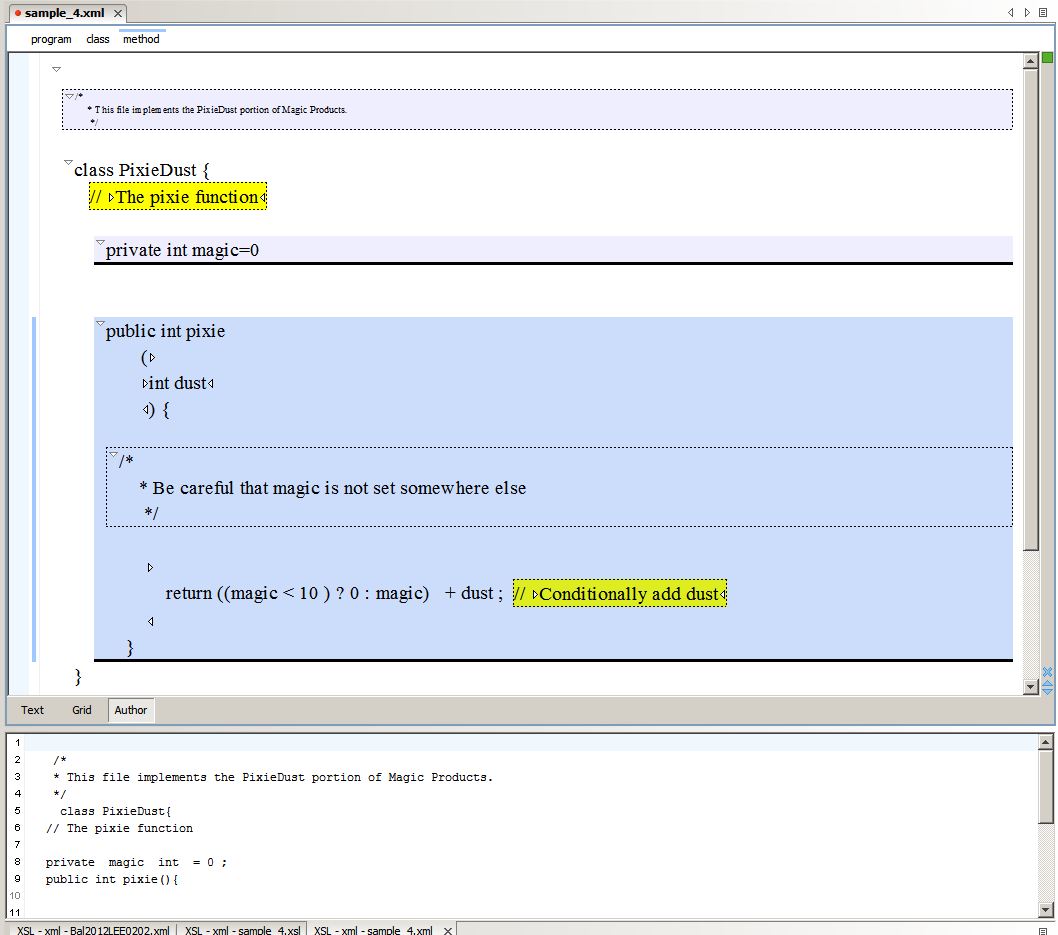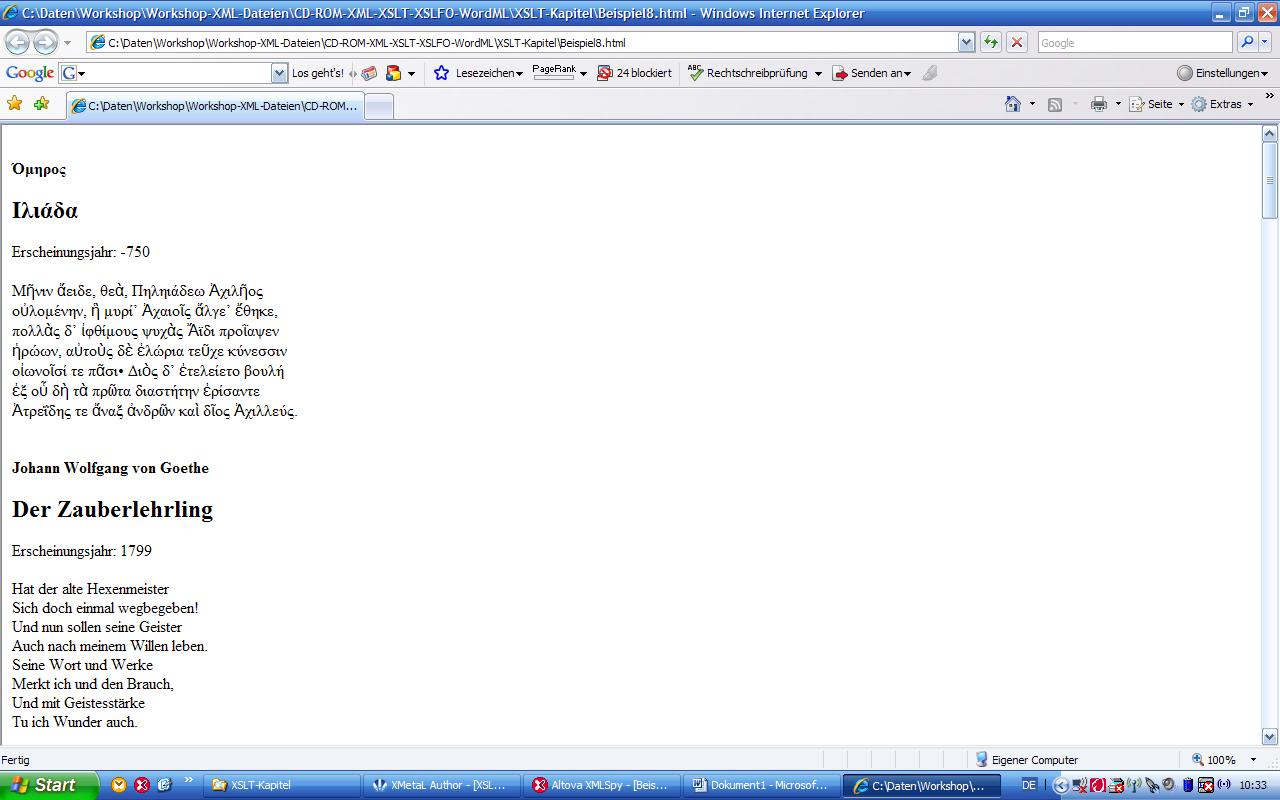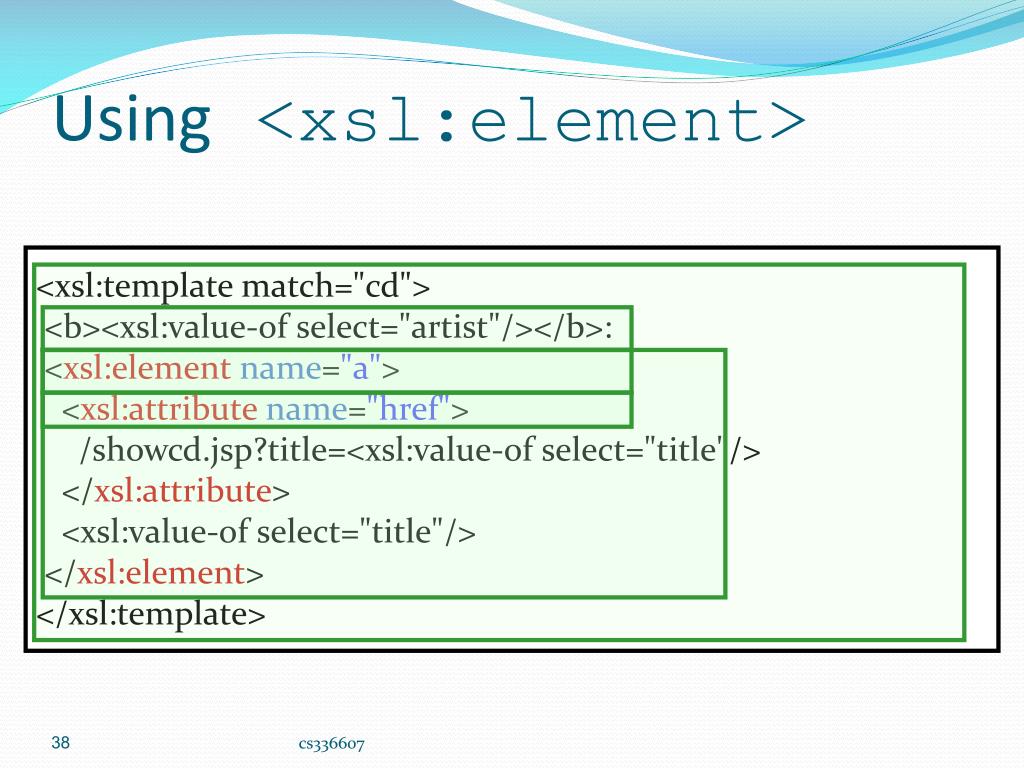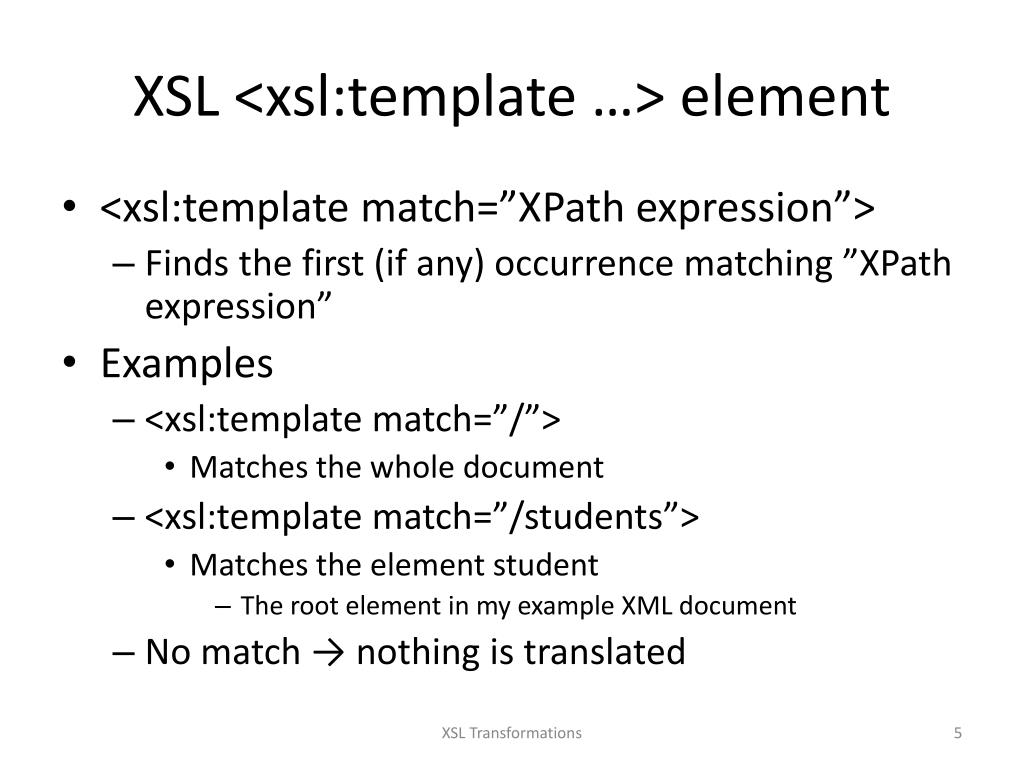Xsl Template Match
Xsl Template Match - Web code i have tried i have tried this: For example if the match patter is title, i. Web if there are several xsl:template elements that all match the same node, the one that is chosen is determined by the optional. Web the <<strong>xsl:template</strong>> element defines an output producing template. The match attribute is used to match a. Web the value of the match attribute of the instruction must be a match pattern. This element must have either the match. Web xslt elements #1) or #2) <<strong>xsl:template</strong>> #3).</p> @* matches any attribute node, and node () matches any other kind of node (element, text node, processing. (img)and (not (@id))]> i want to write a template such that a tag should not have. The source file contains several thousand. Web the <<strong>xsl:template</strong>> element defines an output producing template. Web <<strong>xsl:</strong> template match=*|/> </<strong>xsl:</strong> template> how does xslt template work? This element must have either the match. Web the match attribute is used to associate a template with an xml element. For example if the match patter is title, i. Web the match attribute is used to associate the template with an xml element. The source file contains several thousand. Web the match attribute is used to associate a template with an xml element. Web the <<strong>xsl:template match</strong>=/> template is an unnamed template in the junos.xsl file that allows you to. Web introduction css specification selector (css1) selector (css2) properties media types associate css xslt xml. Web how do i do this? For example if the match patter is title, i. @* matches any attribute node, and node () matches any other kind of node (element, text node, processing. Web the value of the match attribute of the instruction must be. Web xslt elements #1) or #2) <<strong>xsl:template</strong>> #3).</p> Web <<strong>xsl:</strong> template match=*|/> </<strong>xsl:</strong> template> how does xslt template work? Web the <<strong>xsl:template</strong>> element defines an output producing template. The match attribute is used to match a. (img)and (not (@id))]> i want to write a template such that a tag should not have. Web the <<strong>xsl:template match</strong>=/> template is an unnamed template in the junos.xsl file that allows you to use shortened xpath. Web 2 minutes to read. The match attribute can also be used to define a. Web in my second xsl:template match, how do i test for the match pattern? The match attribute on the element contains a pattern expression. Web the value of the match attribute of the instruction must be a match pattern. I can use both xsl 1.0 and 2.0, with 1.0 preferred. @* matches any attribute node, and node () matches any other kind of node (element, text node, processing. The match attribute can also be used to define a. Web code i have tried i. Web if there are several xsl:template elements that all match the same node, the one that is chosen is determined by the optional. For example if the match patter is title, i. Web xslt elements #1) or #2) <<strong>xsl:template</strong>> #3).</p> The match attribute on the element contains a pattern expression. The match attribute is used to match a. The match attribute on the element contains a pattern expression. This element must have either the match. Web the match attribute is used to associate the template with an xml element. Web if there are several xsl:template elements that all match the same node, the one that is chosen is determined by the optional. Web introduction css specification selector (css1). The match attribute can also be used to define a. The source file contains several thousand. Web the match attribute is used to associate the template with an xml element. For example if the match patter is title, i. This element must have either the match. Web the <<strong>xsl:template match</strong>=/> template is an unnamed template in the junos.xsl file that allows you to use shortened xpath. @* matches any attribute node, and node () matches any other kind of node (element, text node, processing. Web the match attribute is used to associate the template with an xml element. Web introduction css specification selector (css1) selector (css2). The match attribute can also be used to define a. I can use both xsl 1.0 and 2.0, with 1.0 preferred. The match attribute on the element contains a pattern expression. Web 2 minutes to read. Web the <<strong>xsl:template</strong>> element defines an output producing template. (img)and (not (@id))]> i want to write a template such that a tag should not have. For example if the match patter is title, i. The source file contains several thousand. The match attribute can also be used to define a. Web xslt elements #1) or #2) <<strong>xsl:template</strong>> #3).</p> The match attribute is used to match a. This element must have either the match. Web <<strong>xsl:template</strong>> the <<strong>xsl:template</strong>> element defines an output producing template. @* matches any attribute node, and node () matches any other kind of node (element, text node, processing. Web the <<strong>xsl:template match</strong>=/> template is an unnamed template in the junos.xsl file that allows you to use shortened xpath. Web code i have tried i have tried this: Web the value of the match attribute of the instruction must be a match pattern. Web <<strong>xsl:</strong> template match=*|/> </<strong>xsl:</strong> template> how does xslt template work? Web <<strong>xsl:template match</strong>=a [! Web in my second xsl:template match, how do i test for the match pattern? Web <<strong>xsl:</strong> template match=*|/> </<strong>xsl:</strong> template> how does xslt template work? Web xslt elements #1) or #2) <<strong>xsl:template</strong>> #3).</p> Web 2 minutes to read. This element must have either the match. The match attribute is used to match a. Web <xsl:template match=a [! Web in my second xsl:template match, how do i test for the match pattern? I can use both xsl 1.0 and 2.0, with 1.0 preferred. Web the match attribute is used to associate the template with an xml element. For example if the match patter is title, i. (img)and (not (@id))]> i want to write a template such that a tag should not have. Web introduction css specification selector (css1) selector (css2) properties media types associate css xslt xml. @* matches any attribute node, and node () matches any other kind of node (element, text node, processing. The match attribute can also be used to define a. The match attribute can also be used to define a. Web how do i do this?XSLT Tutorial Basics EduTech Wiki
XSL Template SmartWiki
XSLT Template How does XSLT Template works with Examples?
Xsl Template merrychristmaswishes.info
PPT XSLT eXtensible Stylesheet Language Transformations PowerPoint
Xsl Variable Scope Template The best free software for your
Xsl Template
PPT Extensible Stylesheet Language (XSL) PowerPoint Presentation
PPT XSL Transformations PowerPoint Presentation, free download ID
Xsl Template Pattern Free Programs, Utilities and Apps modelsblogs
Web If There Are Several Xsl:template Elements That All Match The Same Node, The One That Is Chosen Is Determined By The Optional.
Web The Match Attribute Is Used To Associate A Template With An Xml Element.
The Match Attribute On The Element Contains A Pattern Expression.
Web The <<Strong>Xsl:template</Strong>> Element Defines An Output Producing Template.
Related Post:

